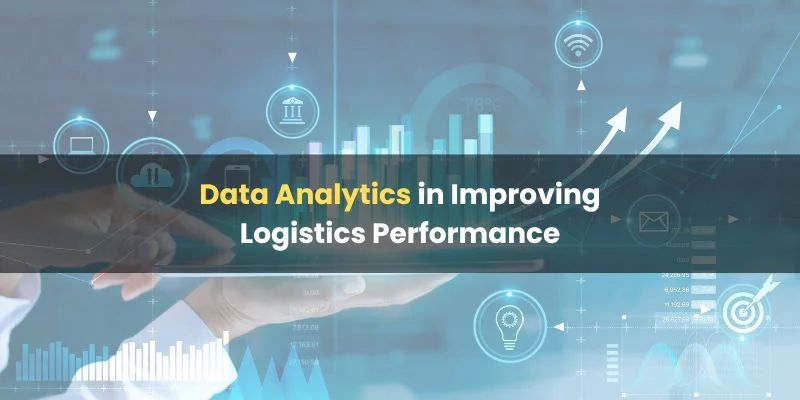In today’s fast-paced global marketplace, efficient logistics operations are essential for maintaining competitiveness and meeting customer expectations. From inventory management to route optimization, every aspect of the supply chain can benefit from data-driven insights. This blog explores how to use Data Analytics for logistics performance improvement, offering actionable strategies and highlighting the role of emerging technologies in driving efficiency and innovation.
How to Optimise Logistics Processes?
Optimizing logistics processes is crucial for reducing costs, improving service levels, and enhancing overall supply chain performance. Here are some key strategies for optimizing logistics operations:
Demand Forecasting
The cornerstone of efficient logistics planning is precise demand forecasts. By leveraging historical data, market trends, and predictive analytics, companies can anticipate future demand patterns and optimize inventory levels to minimize stockouts and excess inventory.
Route Optimization
Efficient route planning is essential for minimizing transportation costs and maximizing delivery efficiency. Taking into account delivery restrictions, fuel prices, and traffic patterns, data analytics can assist in determining the most economical routes. Real-time route optimization solutions enable companies to adapt to changing conditions and optimize delivery schedules. This is one way to optimise Logistics Processes.
Warehouse Management
Streamlining warehouse operations is critical for reducing cycle times and improving order fulfillment rates. Data analytics can optimize warehouse layout, inventory placement, and picking processes to minimize storage costs and improve throughput. Additionally, predictive analytics can forecast demand fluctuations and optimize inventory replenishment strategies to ensure product availability while minimizing carrying costs.
Supplier Collaboration
Effective collaboration with suppliers ensures timely deliveries and reduces supply chain disruptions. Data analytics can provide:
- Visibility into supplier performance metrics.
- Enabling companies to identify bottlenecks and proactively address issues such as quality defects.
- Late deliveries.
- Capacity constraints.
Role of Data Analytics in Logistics
Data analytics transforms logistics management by providing actionable insights that drive informed decision-making and process optimization. Here, we will delve into the role of Data Analytics in Logistics improvement:
Predictive Analytics
Predictive analytics leverages historical data and advanced algorithms to forecast future events and trends. Predictive analytics is useful in logistics because it helps forecast changes in demand, spot possible disruptions in the supply chain, and manage inventory levels to satisfy consumer demand while keeping costs to a minimum.
Real-time Monitoring
Real-time data analytics enables companies to monitor key performance indicators (KPIs) and track logistics operations in real time. By leveraging IoT sensors, GPS tracking, and telematics data, companies can gain visibility into the status and location of shipments, identify potential delays, and proactively address issues before they escalate. This is one important role of Data Analytics in Logistics improvement.
Optimization Algorithms
Optimization algorithms use mathematical models to solve complex logistics problems most efficiently. From vehicle routing to inventory allocation, these algorithms optimize resource utilization, minimize costs, and improve service levels. Machine learning algorithms can continuously learn from data and adapt to changing conditions, enhancing logistics efficiency.
Data-driven Decision Making
Data analytics empowers logistics managers to make informed decisions based on data-driven insights. By analyzing historical performance data, conducting scenario analysis, and simulating “what-if” scenarios, companies can identify opportunities for improvement, mitigate risks, and optimise logistics processes for maximum efficiency and profitability.
Technologies Used in Data Analytics
Several technologies are instrumental in enabling data analytics in logistics. Here are some key Technologies used in Data Analytics:
Big Data Platforms
Big data platforms like Hadoop and Spark provide scalable infrastructure for storing, processing, and analyzing large volumes of data from diverse sources. These platforms enable companies to aggregate data from multiple systems and sources, including ERP systems, IoT devices, and external data sources, to gain comprehensive insights into logistics operations.
IoT Sensors
IoT sensors and devices collect real-time data on logistics operations, including vehicle location, temperature, humidity, and vibration. By leveraging IoT data, companies can track the status and condition of shipments, monitor equipment performance, and optimise logistics processes for efficiency and reliability. IoT sensors are one of the essential technologies used in Data Analytics.
Machine Learning
Visualization tools such as dashboards and data visualization software enable companies to explore and interpret data insights visually. Visualization tools empower logistics managers to identify trends, spot outliers, and make data-driven decisions more effectively by presenting complex data in an intuitive and interactive format.
Visualization Tools
Visualization tools such as dashboards and data visualization software enable companies to explore and interpret data insights visually. Visualization tools empower logistics managers to identify trends, spot outliers, and make data-driven decisions more effectively by presenting complex data in an intuitive and interactive format.
Data Analytics is a game-changer for logistics management, enabling companies to optimize processes, improve efficiency, and drive innovation. By leveraging advanced analytics technologies and embracing a data-driven culture, companies can stay ahead of the competition and deliver exceptional customer value in today’s dynamic business environment. You can learn about Data Analytics if you choose MBA Colleges in Chennai. In this blog, we discussed the use of Data Analytics for Logistics improvement.
Authored by Priys S.,
I want to explore more about the realm of Business and technology. If you want to gain knowledge on starting a successful career journey, connect with me on LinkedIn.



